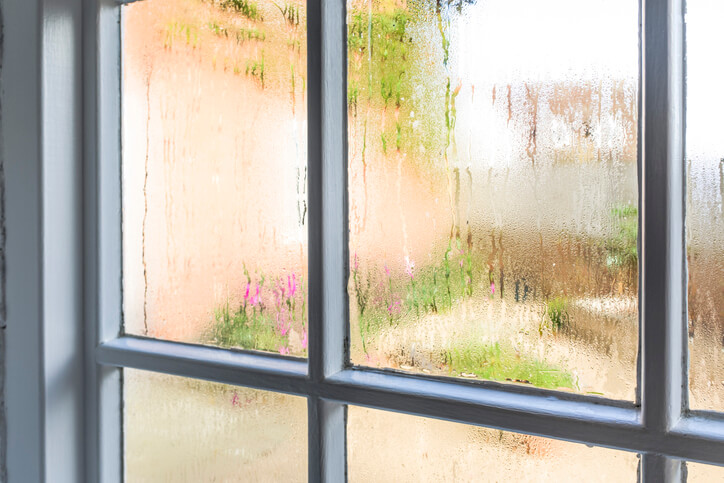California’s weather is notoriously hot and humid — something residents have to contend with even inside their homes. In particular, abnormal humidity levels indoors can cause a myriad of issues ranging from mild discomfort to higher utility bills.
When humidity is too low, your family could also experience serious health complications, including sinus irritation, joint stiffness, itchy skin, and dry eyes. On the other hand, when humidity is too high, your indoor air quality (IAQ) takes a hit, impacting your family’s health.
To help you maintain a comfortable living environment all year-round, Spoor’s Heating & Air Conditioning offers a wide range of residential HVAC products and services.
Contact our HVAC company to schedule HVAC services today!

What Is Humidity?
There are many ways to measure and calculate humidity. The most common, however, is relative humidity. It’s written as a percentage compared with the amount of moisture the air can hold when completely saturated. The amount of moisture the air can hold depends on the current temperature (the warmer the air, the more moisture it can retain). When the air is at 100 percent saturation, the air reaches its natural dew point, and outdoor humidity begins to condense on the exteriors of your home, such as windows.
Common Signs Of High Humidity
As humidity levels increase, the temperature inside the home will feel hotter than what the thermostat reads. The following are common signs of high indoor humidity levels.
- Moist, Clammy Indoor Air
- Foggy Windows & Mirrors
- Inability To Sleep
- Musty, Foul Odors
- Frequent Discomfort
- Wet Insulation
- Mold Growth
- Rotting Wood
- Peeling Or Blistering Paint
- Dust Mites
Effects Of High Humidity On Your Home
- Heightened allergy symptoms. When humidity levels increase, your home becomes a breeding ground for allergens like mold, dust mites, fungi, and bacteria — all common culprits of allergy symptoms.
- Uncomfortable living conditions. Californians know that when humidity levels are high, the heat becomes more unbearable — the same is true in your home. When the humidity is high indoors, it feels hotter than it actually is and can make your home feel sticky and stuffy.
- Increased energy consumption. The natural response to a hotter feeling in the home is to crank up the AC. This can lead to an uptick in energy consumption, costlier utility bills, and an overworked AC unit.
- Property Damage. High humidity doesn’t just affect how you feel; it also affects your home’s physical condition. Too much moisture in the air can warp wood floors, peel wallpaper, and stain walls and ceilings. Often, this type of damage can lead to costly repairs.
How To Control Indoor Humidity
One of the most effective methods of dealing with indoor humidity is having a professional install a whole-home dehumidifier. This appliance can work alongside your HVAC system by pulling moisture from the air before it is forced through the air ducts in the home. When the humidity levels are kept in check, cooling systems can more effectively do their job, resulting in increased indoor comfort levels and, as an added perk, a significant reduction in the cost of utilities.
To ensure the proper function of your AC system and ensure that cold air flows all summer long, schedule planned HVAC maintenance. For more information about increasing home comfort, reducing indoor humidity, or to learn more about our HVAC services, contact Spoor’s Heating & Air Conditioning today.
